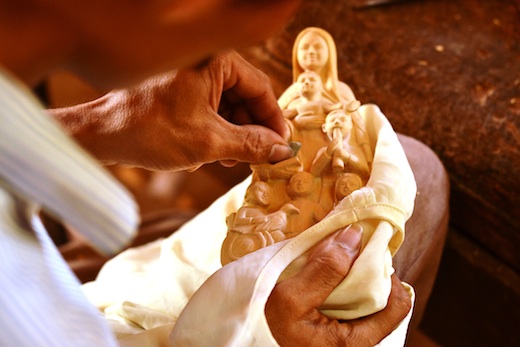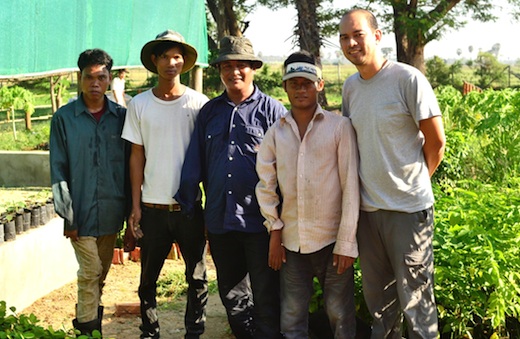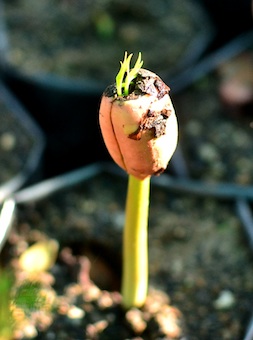In a piece of land measuring 5m x 11m, we began building late last year a simple structure of wooden posts and a nylon mesh roof for the purpose of growing seedlings of hardwood trees native to Cambodia. Located within Banteay Prieb, the Jesuit-run vocational school for people with disabilities, the tree nursery is a collaborative effort of the agriculture students of the centre and their teacher Mr Mam Sony.
The main purpose of the nursery is to help mitigate the widespread deforestation in Cambodia, so that those who depend on these natural resources may continue doing so sustainably. Specifically, the nursery has four objectives. The first is to act as a laboratory to teach the agricultural students of Banteay Prieb how to grow native hardwood tree seedlings from seeds. This is a new part of the curriculum. Different species have different characteristics so there is no single process that can be used for all seeds. Each species requires a slightly different approach in order to grow. This is a skill that the students can use when they go back to their villages.

The third objective is to help conserve Cambodia’s threatened hardwood species. There are many species of native Cambodian hardwoods but government nurseries only propagate a handful of them. With the rapid rate of deforestation in the country, the less common species are becoming harder and harder to find. Thus, before the rare species completely disappear from Cambodian forests, the nursery intends to source good seeds, grow them, and entrust them to communities that will plant and care for them around the country. Hopefully, this can help mitigate the disappearance of forests and preserve Cambodia’s standing forests.
The forth and final objective is to offer carbon offsetting for the air travel of those living in our communities, those working in our institutions, and also of our guests and friends. Every time we fly on an aeroplane, we are responsible for the carbon dioxide produced which contributes to global warming and climate change. The amount of carbon dioxide we produce from each flight can be approximated and translated to a number of trees needed to absorb these emissions. For example, a direct return trip from Incheon, Korea to Phnom Penh, Cambodia will produce about 0.71 metric tons of CO2 per passenger. This would mean growing one to six trees (depending on tree species, age, location) for up to 20 or 30 years in order to absorb the carbon dioxide that one passenger produced by taking that flight. We envision a nursery that can provide this service for our community members and friends.

At present, the nursery houses nearly 2,000 seedlings of seven species of Cambodian hardwood trees. By the time this year’s planting season arrives, we expect to have 5,000 seedlings available for planting by different church and village communities.
Gabriel Lamug-Nañawa SJ is a Philippine Jesuit who works with Jesuit Service Cambodia.







